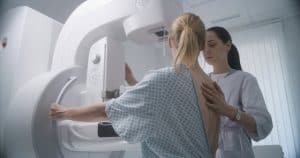
WHO reject convalescent plasma treatment for COVID-19
pharmafile | December 7, 2021 | News story | Manufacturing and Production |
WHO now strongly recommend against the use of convalescent plasma in the treatment of COVID-19 patients regardless of their stage of illness. Some US experts disagree with the recommendation, stating there are patients who may benefit from the plasma of those who have recovered from COVID-19.
This recommendation is based on multiple clinical trials involving over 16,000 patients. In August 2020, the FDA granted emergency use for convalescent plasma use as a treatment for COVID-19, amid scepticism from a number of experts. Citing weak results from a large clinical trial by the Mayo Clinic, National Institutes of Health (NIH) Director, Francis Collins, and National Institute of Allergy and Infectious Diseases (NIAID) Director Anthony Fauci, both called or further research, and for the FDA to reconsider its decision.
Convalescent plasma is plasma from patients who have had and recovered from COVID-19. The plasma includes any SARS-CoV-2-neautralising antibodies that they are producing. It was suggested that infusing this plasma into the blood of people with current infections could alleviate symptoms. The FDA allowed researchers to request authorisation to use this plasma therapy, under an emergency investigational new drug protocol, in March 2020. This research was in patients critically ill with the disease, despite the lack of data from clinical trials.
WHO discussed the use of convalescent plasma in a statement: “Despite its initial promise, current evidence shows that it does not improve survival nor reduce the need for mechanical ventilation, and it is costly and time-consuming to administer. As such the WHO makes a strong recommendation against the use of convalescent plasma in patients with non-severe illness, and a recommendation against its use in patients with severe and critical illness, except in the context of a randomised controlled trial (RCT).”
WHO’s recommendation is informed by review of 16 RCTs, and a “metal-analysis on antibodies and cellular therapies for COVID-19.”
Ana Ovey






